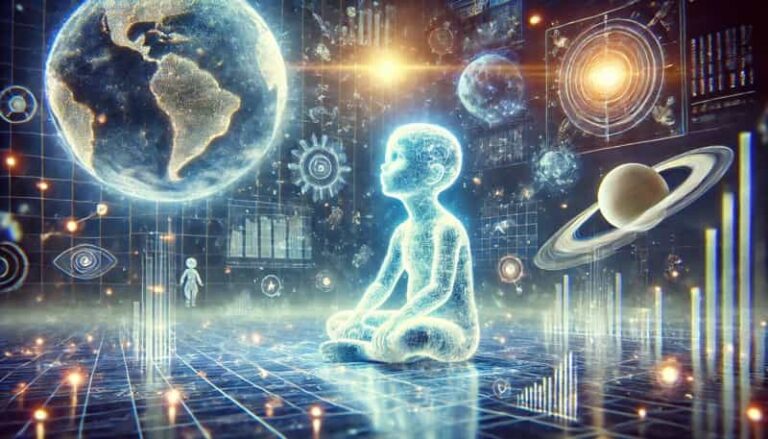
We are in the infancy of artificial intelligence.
Although its learning speed is already astounding, AI is still a child prodigy: it learns everything, copies, imitates, experiments. But it doesn't really understand. And like any child, it needs guidance, rules and vision.
Artificial intelligence is not born to grow like us. It has its own trajectory. And that is precisely why it needs attention.
Every day, without realizing it, artificial intelligence enters our lives: it filters our emails, decides what we see on social media, recommends what to buy, writes, translates, summarizes, corrects. It listens to us, observes us, studies us. And it often makes decisions for us.
It is not a movie future: it is already present. AI is in smartphones, search engines, banks, online stores, cars. It starts talking to us, but not because it really understands. Because it learns to imitate, to adapt, to look human. And it does bloody well at it.
But beware: artificial intelligence is not "intelligent" in the human sense of the word. It does not understand. It does not reflect. It has no consciousness. Yet, it will be everywhere.
Those who think today that AI is just a tool are in danger of underestimating it. Not because it is bad or dangerous, but because it is becoming part of the very infrastructure of our world. Like electricity. You don't see it, but if it's missing you realize you can't do without it.
The real challenge is not stopping artificial intelligence. It is learning how to use it. With judgment. With vision. Knowing what it can do and what it cannot do. Knowing that it is not human, but it can amplify everything human: creativity, intuition, emotion, vision.
Like any child prodigy, AI must be guided. We cannot let it grow on its own, without direction. It needs ethics, awareness, and above all, imagination. Because the real questions are not technical, but cultural: What kind of world do we want to build with this new intelligence.
"Artificial Intelligence is a reflection of natural intelligence: the more powerful the more capable it is of showing us what we are, not what we fear."
- Jaron Lanier


2 Responses